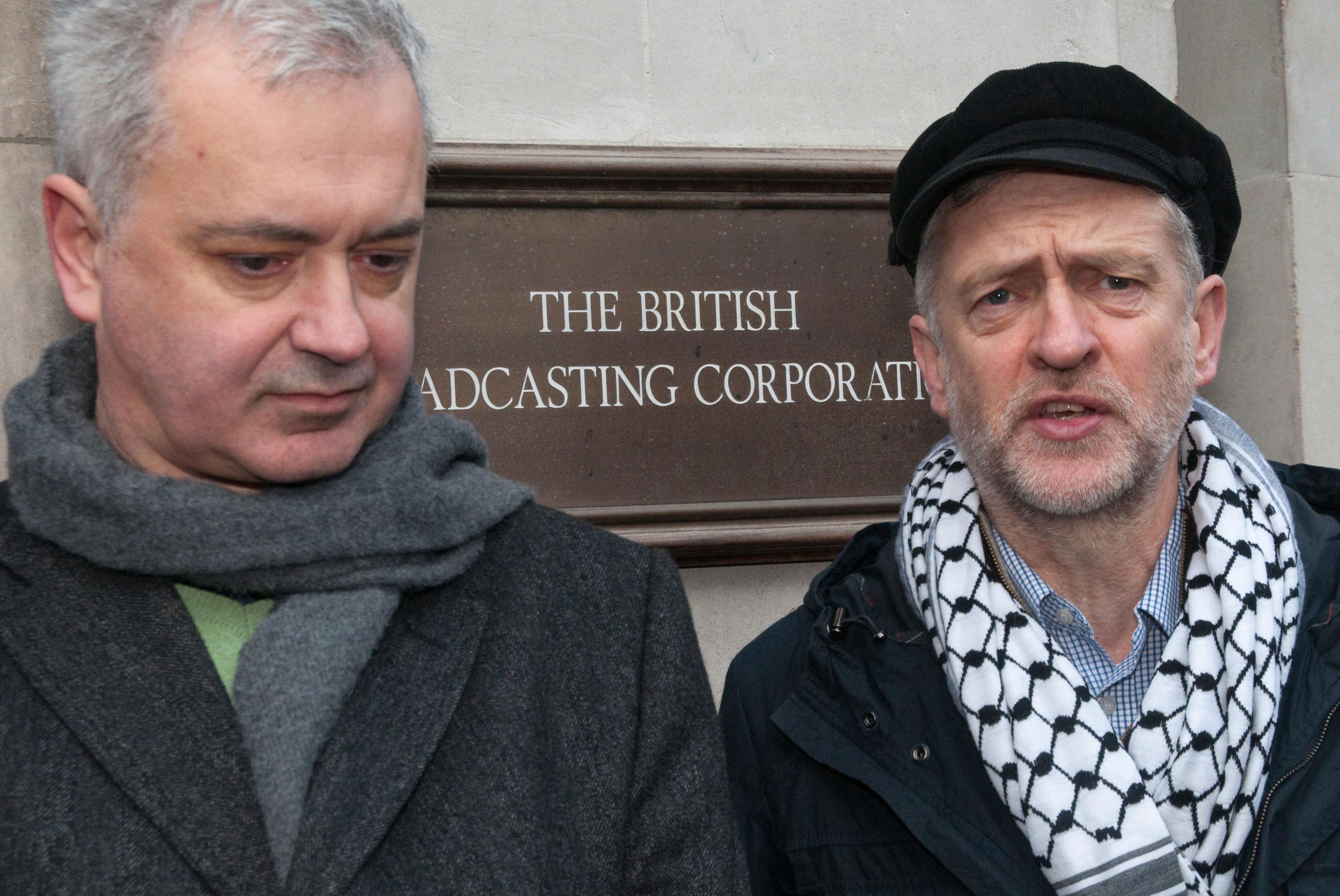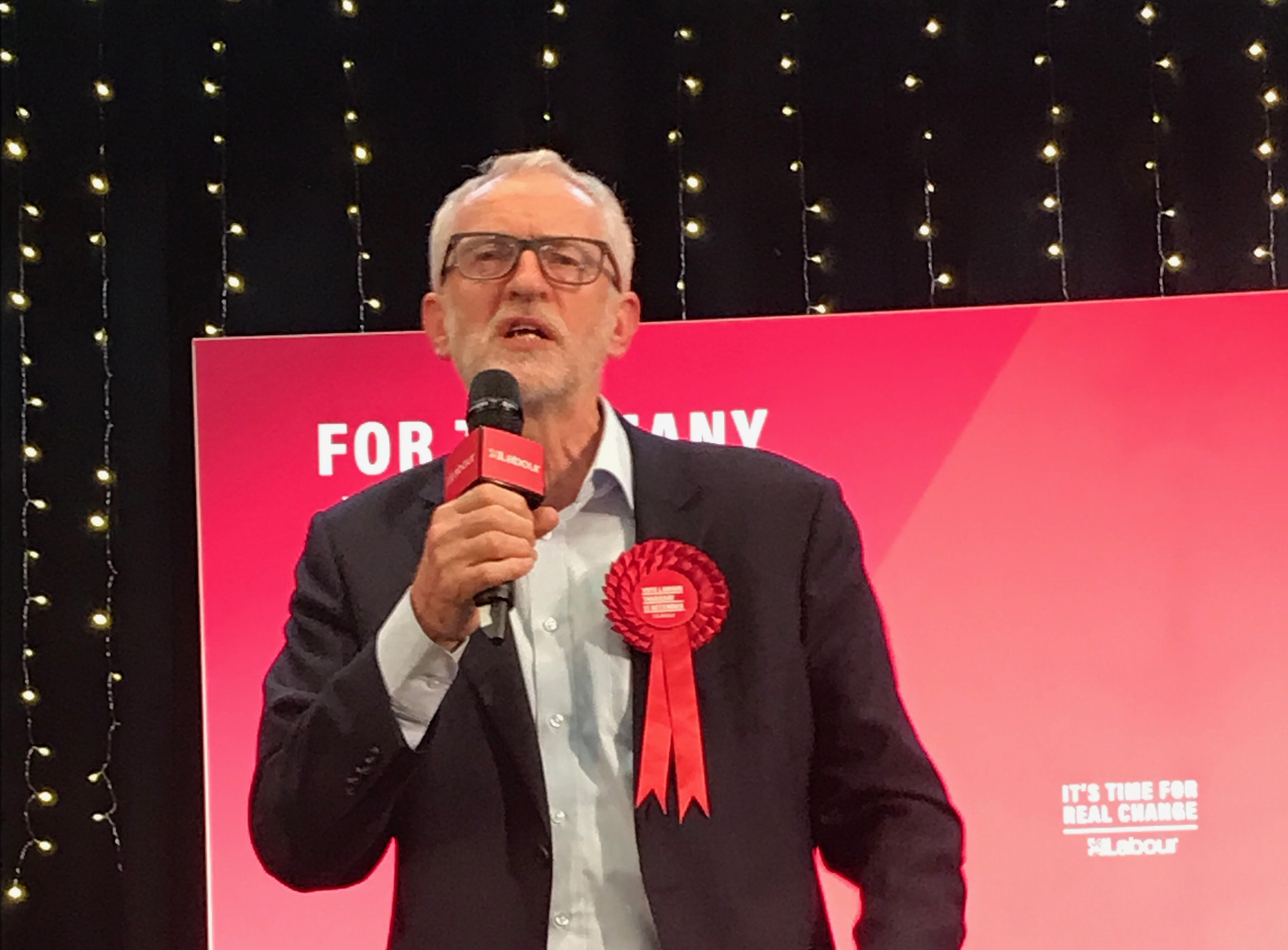
Just who is Keir Starmer trying to impress with his outspoken attack on the Stop the War coalition? He alleges the coalition members were “not benign voices for peace,” but would “actively give succour to authoritarian leaders.” The left in Britain is reading it as another blow in his campaign to isolate the Corbynite left. Andrew Murray, one of the founders of the coalition, writes that the attack only makes sense “as a further demarcation from the Corbynite past and a fresh front in his unceasing war on the Left in his party and outside it.”
But a second look at Starmer’s accompanying statements reveals another theme, that of national unity. In order to create a semblance of unity, he is pre-emptively identifying expressions of dissent as traitorous. He told the Times “The message is that we are firm and united in our support for Nato.” Visiting the Brussels headquarters of Nato, he took the opportunity to deliver “a very important message for our party and for our country, which is that the Labour party support for Nato is unshakable.” Shadow foreign secretary John Healey, on the same visit, underlined “the united UK support for Ukraine and stance against Russian aggression. The government has Labour’s full backing to help Ukraine defend itself.”
Starmer’s insistence on total support for Johnson’s foolish grandstanding over the Ukraine comes at just the moment that the political class is reeling under the multiple scandals of monarchy, government and police. The stability of the system is threatened because the government is floundering over its mishandling of the Covid pandemic and climate change, which has created a political requirement for Labour to neuter any kind of mass peace movement, since there is the possibility that these kinds of protests may attract wider support from popular opposition to the leap in the cost of living and escalating poverty.
In order to signal the reliability of Labour’s support for the British political and military establishment, Starmer rewrites the party’s history to airbrush out opposition to the western alliance from the Bevanite movement, Michael Foot, CND, and the Bennite left. Instead he tries to place himself in a line with Attlee, Denis Healey, and Ernest Bevin whose acceptance of a cold war alignment with the US came from a misplaced fear of a Soviet invasion of Europe after the Second World War. In the geopolitical present, when the US has lost its world economic and military hegemony, he claims that “our allies need our solidarity and – crucially – our practical assistance now more than ever.” What is “our practical assistance” in this context? Starmer is speaking for the British state, not Labour – unless he intends to send Paul Mason over on a delegation to the Ukraine … oh, wait …
As Ed McNally pointed out in Jacobin, “For Labour’s Atlanticists, at least, foreign policy has long been comfortingly simple. Their maxim is one of unthinking deference to the United States, premised on a recognition that Britain’s ability to exercise imperial power rests on its status as a supporting pillar of the American empire. … [they] are wedded to an idea of the United States frozen in the unipolar past, and they are impervious to the catastrophic failure of the ‘project for a new American century.’ This has begun to result in significant disorientation, as the shifting geostrategic tectonics of the twenty-first century and cracks in the foreign policy consensus in Washington itself render the real world less intelligible to Labour’s aspiring hawks.”
It’s not just over foreign policy that the Labour right is living in the past: its dominance in the party is premised on the maintenance of the status quo, and any threat to it from protests or strike struggles needs to be quashed. This means resuscitating its Blairite campaign to marginalize the trade unions. Starmer’s pretensions of a national role may cause him to sneer at the idea that a strike in Coventry might cause difficulties for the relationship between the party and the unions, but this is the face of Labour that voters and union members are seeing. The strike in question involves about 75 refuse workers, who started a two-month strike over pay after talks with Coventry’s Labour-run city council fell through. The council opened several temporary waste collection sites, which led Sharon Graham of Unite to point out: “We have a so-called Labour council prepared to pay agency drivers to drive its bin lorries on more money than the union is asking for.” The council has already spent more than £3 million in just seven weeks trying to break the strike, according to Dave Nellist, a former Coventry MP who is now standing against the Labour party in the Birmingham Erdington by-election. This is far more than it would have cost to settle the dispute, he pointed out.
A Labour spokesperson said: “We’re not going to get into the specifics of this dispute. Keir Starmer’s Labour party will always act in the public interest. These sort of threats [of cutting union funding] won’t work in Keir Starmer’s Labour party. We would have hoped that Unite would have got the message that the Labour party is under new management.” Counterposing the “public interest” to the rights of workers in struggle is straight from the playbook of the moribund New Labour leadership. As if on cue, Peter Mandelson dragged himself out of the grave long enough to tell an event in Scotland that the party leadership “have got to show themselves to be in control, that we are no longer a party of the far left or trade union activists – that we are genuinely the political arm of the British people.”
Starmer’s accelerating transmutation to a rewarmed Blairism is paralleled in the US with the reemergence of Hilary Clinton within the Democratic party. She is floating the idea of a presidential run in 2024, after a potential loss of Democratic control of Congress this year. Whatever her chances of gaining the nomination, her intervention is aimed at defining the party’s message as an attack on Trump’s legacy and turning away from the orientation of the Democratic party left to welfare programmes and extending Medicare. Translated, that means a rerun of her disastrous election campaign of 2016.
Reportedly, Starmer is ready to repudiate Labour’s 2019 election manifesto in a series of key speeches, joined by other members of the shadow cabinet, such as Rachel Reeves, who now say Labour is a “pro-business party”. A senior Labour party source told City A.M. that Starmer is expected to “slaughter the sacred cows of Corbynism” in the lead-up to summer, which is projected to include ditching any talk of energy or water nationalization. Since he has no ideas for addressing the crisis, like Clinton he will return to the failed politics of neoliberalism.
So how will Labour solve the problems of those on the poverty line, jobless, homeless, or struggling with the cost of living? The 2019 manifesto advocated fairer taxation to fund upgrades to schools, hospitals, care homes and council houses, and to train more doctors and nurses. Taking essential utilities like water or energy supply into public ownership would make them responsive to public needs – such as not swimming through raw sewage on the beaches or being faced with sky-high energy bills. These are some of the policies that Starmer is planning to abandon.
UPDATE: 11 left Labour MPs withdrew their names from a Stop the War statement which criticized NATO’s eastward expansion. They were threatened with losing the Labour whip unless they did so. In this way, the right in the party are policing ideological dissent as effectively as the Russian police are arresting protesters in Russia itself.





